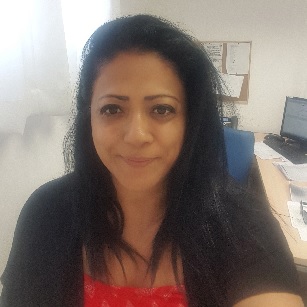Tali Adler
I am proud to be a Palliative Care Nurse Practitioner

I am proud to be a Palliative Care Nurse Practitioner

Even in times of difficult constraints, such as war, Covid-19, or storms, we respond in any circumstances and immediately. It is compulsory to alleviate pain
 Name
Name Education
Education Specialty
SpecialtyI started my professional career 27 years ago at the Orthopedic-Oncological Department at Soroka Medical Center while still a 2nd-year student of nursing. It had been taking a plunge. Then I continued to the Orthopedic Department and then to the community.
8 years ago, I started working in a home hospice unit. In my job's perception, there is tremendous significance in treating and escorting a patient and his family in the last stages of his life. Today, palliative care focuses on improving the patient's quality of life. The results, which are sometimes immediate, are extremely satisfying.
The work is challenging. No treatment plan is like the other; each patient is different, with a complete life-story and unique therapy issues. Therefore, each treatment is individually tailored to a specific patient.
Work is around the clock, 7 days a week. The commitment is immense. The Southern District is the largest in terms of geographical area. The patient mix is diverse and includes sectors such as religious, secular, and the Bedouin sector – in recognized and unrecognized villages, etc. The service is identical to everybody and requires a cultural adaptation. The teams get to cities, settlements, kibbutzim, moshavim, and villages.
Many cases have been engraved in my memory; among them was the case of a dear woman, who had been 90 years old when arriving at the department, a holocaust survivor. She was symptomatic, but we managed to stabilize her in a way that gave her seven additional months of wonderful life quality, with substantial functional and general improvement.
In her last days, she called her 3 children and 10 grandchildren and separated from each of her loved ones personally. The day after, she asked me to come and ease her pain because she could not go on, and felt that the end was near. I gave her some supportive treatment and when I parted with her, she told me a sentence I would never forget: "thank you for keeping your promise and being here for me". The day after she passed away, peacefully, precisely on my birthday…